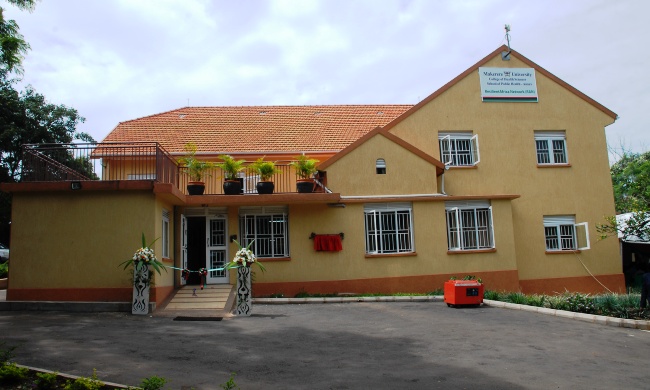Makerere University has once again set a record performance at this year’s Big Ideas 2018 Contest by sending nine student teams to the final round. Big Ideas is an annual contest orgainsed by the University of California, Berkeley and its partners, aimed at providing funding, support, and encouragement to interdisciplinary teams of students who have “big ideas.”
Breaking the news to ResilientAfrica Network (RAN), Makerere University; the contest’s coordinator in Uganda, the Director, Big Ideas Contest Phillip Denny shared that his organisation had notified the winning student teams on 18th April 2018 “and I can now report to you that students’ teams from Makerere University did exceptionally well!”
Reacting to the exciting news, RAN’s Communication Manager-Ms. Harriet Adong said, “I thank the RAN team for continuously supporting this Contest but most importantly serving as judges and mentors” “Our efforts have come to fruition and will continue to cause impact in the communities in which we serve and live” she added.
Of these nine teams, six; another record number, were selected as winners by the judges, and three of those six won top honors in their respective categories.
Here are the highlights:
- TRAM Project – Enhancing financial freedom and food security to smallholder farmers in Uganda through providing quality food storage systems – won 1st Place in the Food Systems category.
- LUMENDA – An affordable and portable device for rapid and accurate diagnosis of neonatal bacterial meningitis in low resource settings – won 1st Place in the Global Health category. LUMENDA has also been selected to participate (via Zoom video conference) at our Grand Prize Pitch Day event on April 25th, for the chance to win an additional $5000 for their project.
- Early Preeclampsia Detection (EPED) Strip – A urine-based point-of-care early diagnostic test strip for preeclampsia enabling women to self-screen for the condition – won 1st Place in the Scaling Up category.
- Ecosmart Pads – Locally sourced, high quality and affordable sanitary pads made from sugarcane residue – won 3rd Place in the Global Health Category.
- Coordinated Emergency Response System (CERS) – Utilizing a combination of USSD for free communication and the proliferation of e-ridesharing services in Kampala to provide rapid and safe transportation in emergency situations – received an Honorable Mention in the Global Health category.
- Livestock Disease Diagnosis Kit (LIDDIA Kit) – An affordable point-of-care diagnostic device base that enables farmers to conduct routine checkups on livestock for early and timely treatment – received an Honorable Mention in the Food Systems category.
Makerere University congratulates these nine student teams upon advancing to the final stage of the Big Ideas 2018 Contest and wishes them the best of luck at the penultimate stage. Furthermore, appreciation goes to the RAN staff, judges and mentors who offered invaluable assistance to the student teams.
For more information, please contact
Harriet Adong,
Communications Manager
ResilientAfrica Network (RAN)
Makerere University School of Public Health
P.O Box 7072 Kampala, Uganda
Tel. Off: +256-414 343 597
Email: hadong[at]ranlab.org
Website: www.ranlab.org
Skype: harriet.adong4


 General7 days ago
General7 days ago
 General2 weeks ago
General2 weeks ago
 Natural Sciences1 week ago
Natural Sciences1 week ago
 Agriculture & Environment5 days ago
Agriculture & Environment5 days ago
 Health1 week ago
Health1 week ago


